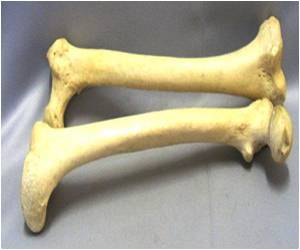In patients with Down syndrome, key eye reflexes are substantially altered, says researcher.

"People with Down syndrome suffer various degrees of motor difficulty," said Costa, whose study was published last week in the journal, Experimental Brain Research. "They tend to walk later than their typical peers; they often lack balance and have low muscle tone and poor postural control."
That's likely because Down syndrome affects the optokinetic and vestibular systems of the brain. In a healthy brain, the vestibular system reacts to signals from neuroreceptors in the inner ear to produce responses to head movements. The optokinetic system uses visual information to produce eye movement. These reactions are often slow or decreased in those with Down syndrome.
Costa studied 32 participants between the ages of 14 and 36. He used special binocular goggles to measure eye movements in response to visual and vestibular stimuli. His focus was the cerebellum which is responsible for balance, posture and movement control.
"Although we have known for many years that the cerebellum is disproportionally shrunk in persons with Down syndrome, we wanted to find out how their cerebella operated on a functional level," Costa said. "We found that people with Down had much diminished optokinetic and vestibular reflexes compared to typically developing individuals. As a consequence, it is likely that things may appear blurry when they ride a bike or play sports."
Because those with Alzheimer's disease also show a similar reduction in the optokinetic reflex, these new findings further support Costa's ongoing exploration of the links between Down and Alzheimer's disease.
Advertisements
Babies born with Down often carry the biological markers for Alzheimer's. At the same time, 20-30 percent of those with Down syndrome develop full-blown Alzheimer's dementia by the time they reach their 50s, he said.
Advertisements
"Alzheimer's patients suffer similar declines to those with Down syndrome and we might be able to use the same drugs to treat both," he said. "As we continue to explore how these two conditions are linked, new avenues of treatment could arise that would not only alleviate symptoms but perhaps delay or stop the progression of these degenerative disorders."
Source-Eurekalert









